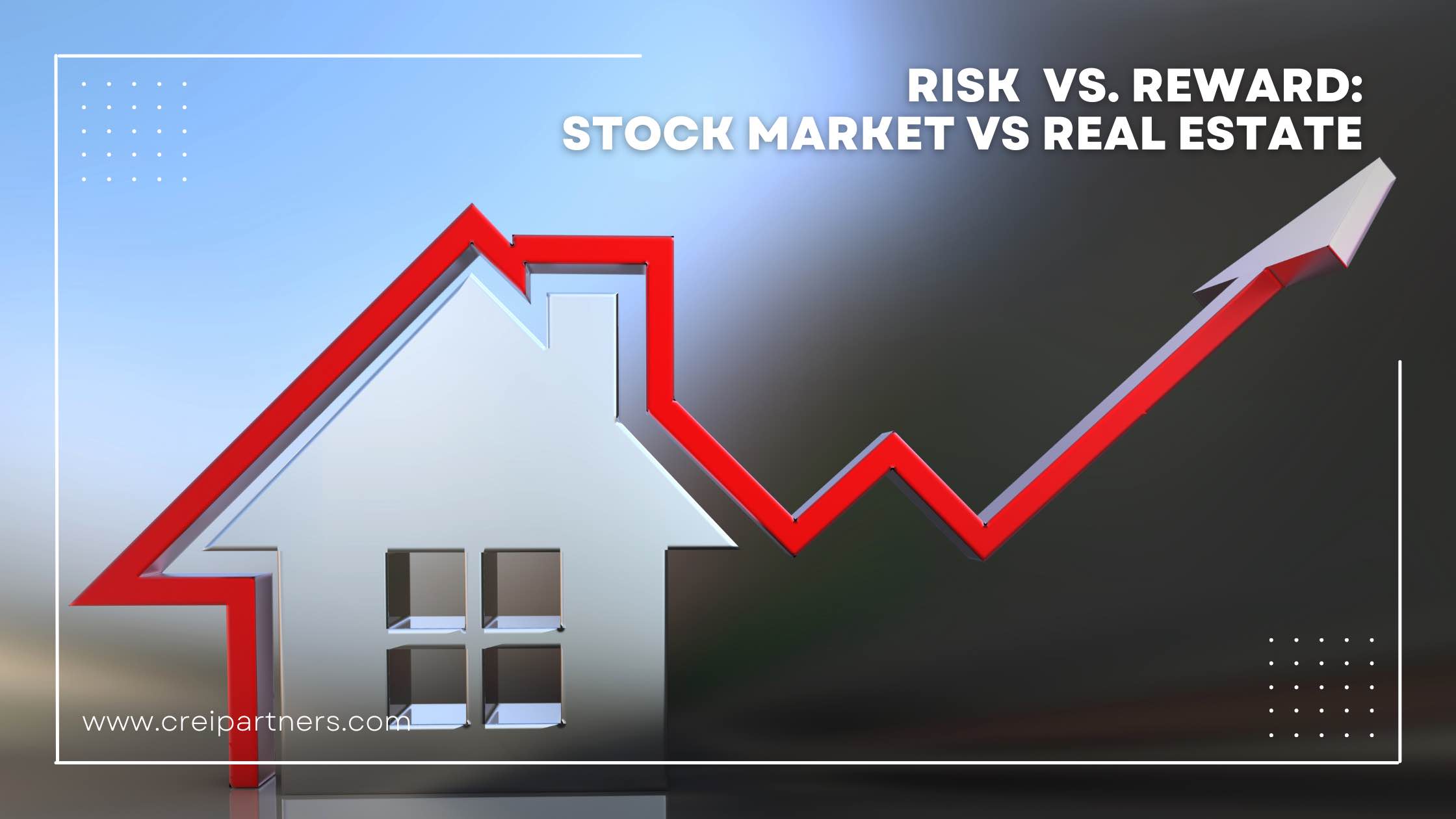
Risk vs Reward: 4 Factors to consider when deciding between Stock Market and Real Estate Investing
Wealth building is a universal goal. However, as we all know, there are a myriad of ways, filled with both risks and rewards, to attempt to reach this goal. The primary decision point of many investors hinges on the decision between stock market and real estate investing. Which offers a more secure, predictable path toward hitting financial goals?
First, let’s get on the same page by defining investment risk. The Financial Industry Regulatory Authority or Finra.org defines risk as “any uncertainty with respect to your investments that has the potential to negatively affect your financial welfare.” They go on to state that every investment has risk, and that the level of reward often has a correlation to the level of risk in an investment. Riskier investments may have higher rewards-if there are rewards at all.
Below you will find a discussion of 4 stock market risks, that turn into rewards in real estate investing.

 Subscribe to our newsletter so you never miss out on new investment opportunities, podcasts, blogs, news and events.
Subscribe to our newsletter so you never miss out on new investment opportunities, podcasts, blogs, news and events.